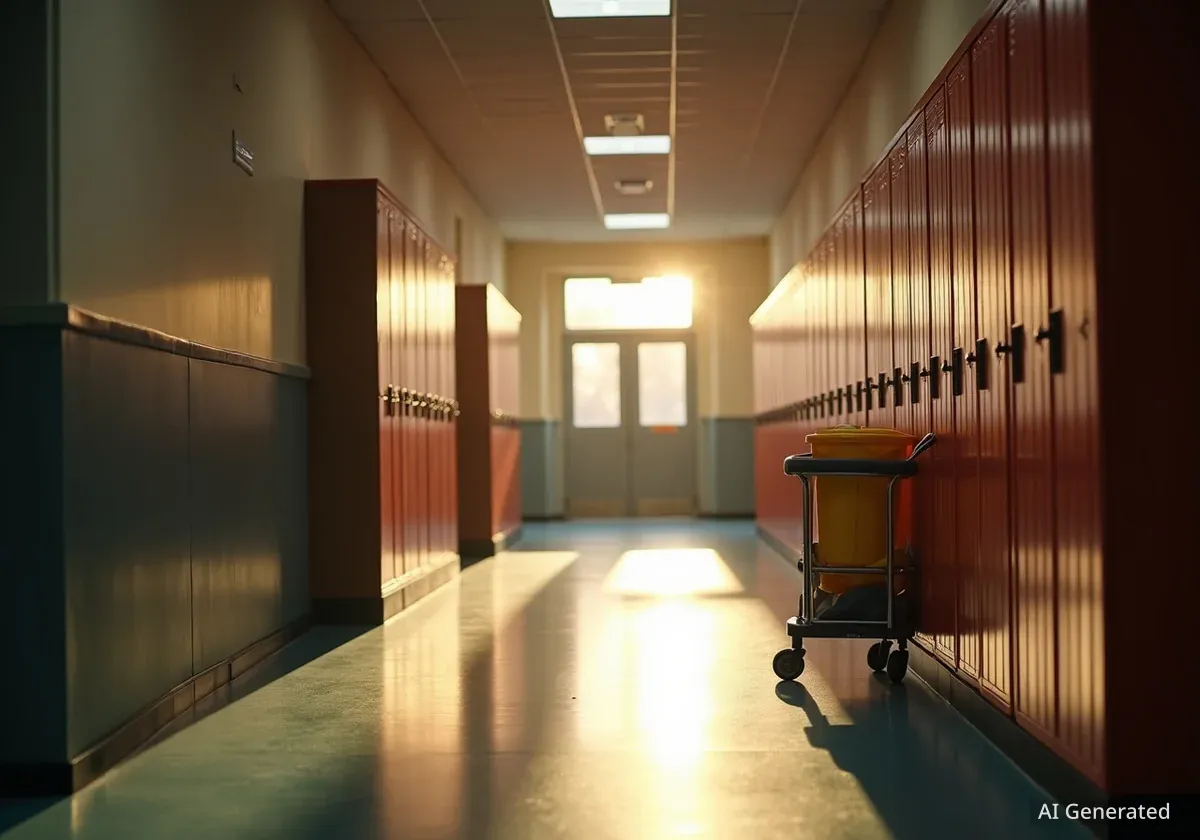Five years after the global pandemic forced schools to close their doors, Oregon educators are still navigating the profound academic and social consequences for students. While statewide data reveals a slow recovery, one district in Oregon's wine country is demonstrating that a focused approach combining academic rigor and community engagement can make a significant difference.
In the McMinnville School District, educators are seeing encouraging signs of progress. Students there are outperforming state averages in key areas like graduation rates, regular school attendance, and grade-level proficiency in reading and math, offering a potential roadmap for other districts grappling with similar challenges.
Key Takeaways
- Five years post-pandemic, Oregon students continue to face academic and social-emotional challenges stemming from remote learning.
- The McMinnville School District has shown a stronger recovery than the state average, attributed to targeted support, parent involvement, and a focus on social skills.
- Chronic absenteeism remains a major issue, with Oregon's rate at approximately 38%, significantly higher than pre-pandemic levels.
- Educators identify the combination of learning disruptions and increased technology use as key factors affecting student development.
The View from the Classroom
At Wascher Elementary School in Lafayette, the daily routine in Nicole Reynolds' kindergarten class includes lessons that go beyond letters and numbers. On a recent morning, the topic was responsibility, taught through song and discussion. This focus on social-emotional learning is a direct response to the developmental gaps many educators have observed in children who spent their formative years in relative isolation.
"It’s recognizing how things we do can impact other people," Reynolds explained to her class, linking the concept to a storybook about collective consequences. These foundational social skills, once absorbed through play and daily interaction, are now being explicitly taught in classrooms.
The students in kindergarten today were born during the pandemic's peak, while current fifth graders missed their own in-person kindergarten experience. These two groups represent critical benchmarks for educators assessing the long-term impacts of the educational disruption.
A Generation Shaped by Disruption
Oregon was one of the last states to fully return to in-person instruction, a decision that experts suggest may have contributed to its slower academic recovery compared to other parts of the country. The shift to remote learning not only disrupted academics but also fundamentally altered the social fabric of school life.
Addressing the 'Sandlot Skills' Gap
Kourtney Ferrua, the interim superintendent for the McMinnville School District, pointed to another significant factor compounding the pandemic's effects: technology. She noted a decline in what she calls "sandlot skills"—the ability for children to play imaginatively, share, and resolve minor conflicts on their own.
"School is really about being social, and so, we need to teach those skills more explicitly than we did 10 years ago," Ferrua said.
The combination of remote learning and increased screen time created a more isolated environment for children. As a result, many students entered school without the expected developmental readiness, struggling with everything from basic social cues to handling frustration and failure.
This challenge has prompted a concerted effort in McMinnville to rebuild not just academic knowledge but also the fundamental social competencies students need to succeed both in and out of school.
The Attendance Crisis
Chronic absenteeism, defined as missing 10% or more of school days, has surged nationwide. In Oregon, the rate climbed to about 38% in the 2022-23 school year. While McMinnville's rate of 30% is better than the state average, it is still triple its pre-pandemic figure of less than 10%.
The Power of Parental Involvement
In another classroom at Wascher Elementary, fifth-grade teacher Julie Schaffner is working with students who were supposed to be in kindergarten when schools first shut down. With 29 years of teaching experience, she has a unique perspective on how this cohort differs from previous ones.
"I feel like this group, they’re engaged in learning, and they actually want to be here, and they work really, really hard," Schaffner observed. She credits this positive attitude in large part to their parents.
Schaffner noted a remarkable level of parental engagement for this specific group. At a recent back-to-school night, 17 out of her 20 students' parents attended, a significant increase from the typical nine or ten. She believes that parents, worried about the pivotal kindergarten year their children missed, made extraordinary efforts to supplement their learning at home.
This proactive involvement extends beyond individual classrooms. Ferrua mentioned a parent-led initiative in the district that organized community discussions about the mental health impacts of technology on children, inspired by the book "The Anxious Generation."
- Community Action: Parents partnered with the district to host forums on youth anxiety and technology.
- Classroom Support: High attendance at parent-teacher events indicates a strong home-school connection.
- Proactive Learning: Many parents actively worked to fill learning gaps during the remote period.
"Parents are their child’s first teacher, and they’re their most important teacher throughout their life," Ferrua stated. "How they feel about school really influences our students."
A Path Forward
While the challenges are substantial, the progress in McMinnville offers a sense of optimism. The district's success suggests that recovery is not just about catching up on math and reading, but about rebuilding the entire school ecosystem, from social skills in the classroom to strong partnerships with families.
Schaffner has adapted her teaching methods, incorporating lessons learned about technology during remote learning and collaborating closely with specialists to support students who fell behind. Her ultimate goal is to prepare them for the next stage of their lives.
"I want them to be good humans," Schaffner said. "I want them to treat each other nicely and to encourage each other. And I want them to try."
The journey to full recovery is long, and educators acknowledge that the pandemic will have a lasting impact on this generation of students. However, the focused efforts in districts like McMinnville show that growth is possible.
"This terrible thing happened to kids and teachers... and all of us will forever be changed by it," Ferrua concluded. "But what we know about humans and brains is that they are always growing."





